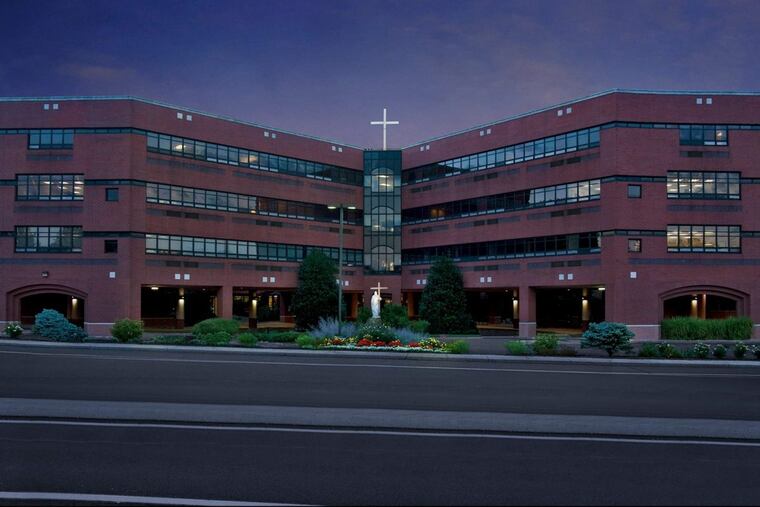Redeemer Health seeks strategic partner after losing money for five years
The nonprofit, Roman Catholic health system said it does not intend to sell its 239-bed hospital in Montgomery County. It seeks a partner that shares its focus on health inequities and disparities.

Redeemer Health, a Montgomery County Roman Catholic nonprofit that has reported five straight years of operating losses, wants to form what it called a “strategic partnership” for its hospital in Meadowbrook and its physician practices, according to a letter Monday addressed to the Redeemer community.
It’s not clear what Redeemer means by the pursuit of a strategic partnership — which comes a decade after a proposed merger with Abington Health was called off amid controversy over the the intention to stop abortions at Abington.
“We are not considering selling the hospital but instead partnering with other health care providers who share our commitment to serving our current and future communities including efforts to address health inequities and disparities,” Redeemer chief executive Mike Laign said in the letter.
Sometimes health systems talk about “strategic partnerships” and mean little more than cooperation in selected service lines, experts say. Redeemer already has such a partnership with MD Anderson Cancer Center at Cooper in Camden for an integrated cancer treatment program. But it could be that Redeemer is seeking a stronger alliance to help it withstand the financial challenges it has had as a small, independent system.
The long-running coronavirus pandemic has made it hard even for financially strong systems to break even because of disruptions to services as patients stayed home for fear of contracting the virus. Labor costs also soared because many nurses and other workers have left their jobs and administrators have used higher wages and bonuses to recruit replacements.
Redeemer did not immediately provide additional information.
Health system turmoil
The announcement by Redeemer, which is not financially distressed, adds to the flux in the Philadelphia-area hospital industry. Tower Health is trying to sell Chestnut Hill Hospital and the already closed Brandywine and Jennersville Hospitals in western Chester County. It is also wants to reduce its role at St. Christopher’s Hospital for Children, which it owns 50-50 with Drexel University.
ChristianaCare, Delaware’s largest health system, announced in February that it had a preliminary deal to acquire Delaware County’s Crozer Health, which is owned by a California for-profit, Prospect Medical Holdings Inc. It’s not clear if ChristianaCare and Crozer are on track for a final agreement by next month, as was originally projected.
Meanwhile, Prospect continues eliminating services at Crozer’s hospitals. The intensive care unit at Delaware County Memorial Hospital in Drexel Hill is closing near the end of this month. In June, Crozer will end outpatient mental health and substance use disorder treatment services at the former Community Hospital campus in Chester, as well as the inpatient substance abuse unit at Crozer-Chester Medical Center in Upland.
» READ MORE: VA plans to close its hospitals in Coatesville and University City in massive restructuring
Redeemer said its search for a partnership involves just the 239-bed Holy Redeemer Hospital and Holy Redeemer Physician and Ambulatory Services. The hospital and the physician practices accounted for $354 million of Redeemer’s $445 million in total revenue in the year ended June 30, 2021, according to its latest audited financial statement. Combined, those two units had $14 million in operating losses.
The Redeemer organization also owns retirement communities, nursing homes, a hospice services, a home care and hospice provider, low-income housing for seniors and disabled individuals, a visiting nurse organization, and related businesses.
Catholic health systems are required to follow ethical and religious directives established by the the U.S. Conference of Catholic Bishops. The 49 directives include prohibitions of abortions and direct sterilization, for example.